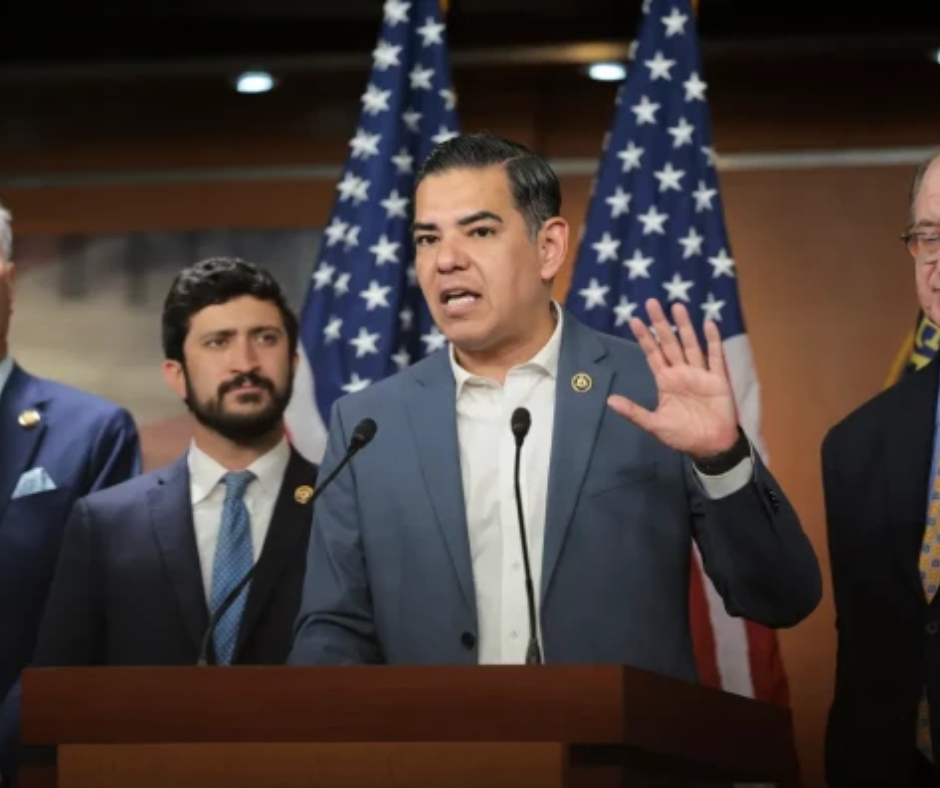
When you hear the word censure, it might sound like political jargon, but it’s actually a very important and symbolic action in Congress. Whether you’re a political junkie or just someone who wants to understand what’s going on when Congress makes headlines, knowing the censure meaning is key. Let’s break it down in plain English, explore how censure in Congress works, and look at some recent controversies that have put this word in the spotlight.
What Does Censure Mean?
At its core, censure is a formal expression of disapproval. Think of it like a public reprimand — Congress officially says, “We don’t like what you did, and we want the world to know it.” It’s not a legal penalty, and it doesn’t remove anyone from office. But it’s serious enough to damage reputations and show that an elected official has crossed a line, at least in the eyes of their colleagues.
What Does Censure Mean in Congress?
When we talk about censure in Congress, we’re talking about a formal vote taken by either the House of Representatives or the Senate. The goal is to officially condemn the actions of a member. The censure meaning in Congress is all about public accountability — it’s a symbolic slap on the wrist, but it can carry significant political weight.
What Does It Mean to Censure a Congressman?
This is one of the most common questions people have when they hear the word thrown around during a scandal or controversy. To censure a congressman means the full chamber (either the House or the Senate) votes to formally disapprove of that member’s behavior. The congressman (or congresswoman) usually has to stand in the well of the chamber while the censure resolution is read aloud — a moment of public humiliation.
What Does It Mean to Be Censured in Congress?
If a lawmaker is censured, it’s essentially Congress saying, “We see what you did, and we’re officially putting it on record that we disapprove.” This doesn’t kick them out of office or prevent them from running for re-election, but it can damage their reputation, weaken their influence, and make their re-election campaigns a lot tougher.
Recent Example: Al Green’s Attempt to Censure Trump
One of the latest stories involving censure in Congress centers around Democratic Rep. Al Green. Recently, Green proposed a resolution to censure President Donald Trump over his actions related to racial protests and inflammatory language. The resolution sought to formally condemn Trump for allegedly inciting violence and encouraging racial tensions.
However, this move didn’t go as planned. Many members of Green’s own party either opposed or abstained from supporting the effort. Some Democrats argued that focusing on censure now could distract from other pressing priorities, while others believed the resolution didn’t fully capture the complexity of Trump’s actions. Ultimately, Green’s censure effort was blocked, making headlines and sparking debate over whether Congress should be using censure more frequently — or not at all.
What Is Censure in Congress: Historical Context
To really understand why censure matters, it helps to know its history. Censure in Congress dates back to the early years of the United States. It’s a way for Congress to police its own members or even criticize other government officials, including presidents. Unlike impeachment, which can remove someone from office, censure is purely symbolic. It’s Congress saying, “You embarrassed us, and we want the record to show we’re not okay with it.”
How Often Does Congress Use Censure?
Not very often — and that’s part of why it makes headlines when it happens. In fact, only a handful of members have ever been censured. Presidents have faced censure attempts too, but only a few have actually been censured by Congress. This makes Al Green’s recent push all the more interesting. By attempting to censure Trump, Green was trying to put Trump’s behavior on the official record, even though Trump is no longer in office.
What Does Censure Congress Say About Our Politics Today?
The fight over censure — who deserves it, when it should happen, and whether it’s even effective — says a lot about the deep divides in Congress today. Some lawmakers see censure as an essential accountability tool. Others see it as political theater, a way to score points without actually changing anything. This split was on full display in the Al Green-Trump episode, with Democrats themselves divided over whether to back the move.
Why Some Democrats Opposed the Trump Censure
According to reports, some Democrats worried that targeting Trump with censure could backfire. Trump thrives on controversy, and some feared that censuring him would only energize his base. Others thought it was a waste of time, given that Trump is no longer president. This internal conflict highlights how even within a single party, there’s no consensus on the role of censure in today’s political climate.
Can Members Be Punished for Opposing Censure?
In a surprising twist, some Democratic leaders are reportedly considering stripping committee assignments from members who derailed the censure resolution. This raises big questions about party loyalty, dissent, and whether lawmakers should be punished for voting their conscience. It also shows how high the stakes around censure have become — it’s not just about sending a message to Trump, but about internal party discipline too.
Is Censure Effective?
This is the million-dollar question. When Congress censures someone, it makes headlines. It puts their misconduct on the record. But does it really change behavior? Critics argue that in today’s hyper-partisan environment, censure is little more than political theater. Supporters say it’s an important symbol — a way for Congress to say, “This crosses the line,” even if the practical consequences are minimal.
The Human Side of Censure

It’s easy to get caught up in the political and legal jargon around censure, but at the end of the day, it’s about people. It’s about lawmakers being held accountable (or not), reputations being built or shattered, and voters deciding whether they care. For the member being censured, it can be a career-defining moment — either a humiliating low point or a badge of honor, depending on how they spin it.
What’s Next for Censure in Congress?
As the Al Green case shows, censure isn’t going away anytime soon. With the 2024 election cycle heating up and new controversies emerging every day, expect censure to be back in the headlines — whether it’s aimed at Trump, sitting members of Congress, or anyone else who finds themselves at the center of a political storm.
Quick Recap: What You Need to Know About Censure
| Term | Meaning |
|---|---|
| Censure meaning | Formal expression of disapproval |
| Censure meaning in Congress | Public condemnation by House or Senate |
| What does it mean to censure a congressman? | Official reprimand for misconduct |
| What does it mean to be censured in Congress? | Public rebuke recorded in congressional history |
| Censure Congress | A formal process used to condemn behavior of a member or official |
| Censured | The past tense form — indicates someone has already faced censure |
Famous Historical Cases of Censure in Congress
To understand why censure still holds power (even if it’s just symbolic), it helps to look back at some of the most famous cases in U.S. history. Here are a few notable ones:
1. Andrew Jackson – 1834
Jackson was the first (and so far only) president to be formally censured by the Senate. The reason? He refused to hand over documents related to the Bank of the United States. Jackson’s response was pure Jackson — he ignored the censure and eventually had it expunged from the record. Still, the censure meaning was clear: the Senate wanted to make a statement about executive overreach.
2. Joseph McCarthy – 1954
Senator McCarthy, famous for his anti-communist witch hunts, was censured by the Senate for conduct “contrary to senatorial traditions.” This censure marked the beginning of the end for McCarthy’s political career. Though he remained in office, his credibility never recovered.
3. Charlie Rangel – 2010
More recently, longtime Democratic Congressman Charlie Rangel was censured by the House for ethics violations, including improper fundraising and tax misdeeds. Like other cases, Rangel’s censure didn’t remove him from office, but it left a permanent mark on his legacy.
Why Does Censure Matter if It Doesn’t Remove Anyone from Office?
That’s the big question a lot of people ask. If censure is just a public scolding, why does it matter so much? The answer lies in public perception. When a member is censured, it’s like their colleagues are saying: “You embarrassed Congress, and we want everyone to know.” That can have ripple effects, including:
- Damaged reputation: Future campaigns become harder.
- Weakened influence: Colleagues may distance themselves.
- Historical stain: Being censured sticks in the history books forever.
For someone who cares about their legacy — and most politicians do — censure is a scar that never fully heals.
What Does It Mean to Censure a Congressman Compared to Expulsion or Impeachment?
| Tool | What It Means | Who It Applies To | How Severe? |
|---|---|---|---|
| Censure | Public rebuke for misconduct | Members of Congress or Presidents | Symbolic but embarrassing |
| Expulsion | Forced removal from office | Members of Congress only | Very severe |
| Impeachment | Formal charges of wrongdoing | Presidents, Judges, Federal Officials | Can lead to removal (if convicted) |
Quick Takeaway
- Censure = Slap on the wrist (but public and historic)
- Expulsion = You’re fired
- Impeachment = Formal charges, with trial and possible removal
Public Reaction to Recent Censure Congress Drama
When Al Green tried to censure Trump, the public reaction was divided — just like Congress itself. Some people applauded Green for holding Trump accountable, even post-presidency. Others saw the move as a political stunt designed to grab headlines rather than actually change anything.
What’s interesting is how much attention the word censure got. For many Americans, this was their first time even hearing the term. That’s part of why understanding censure meaning and what does censure mean in Congress is so important — because these words are shaping today’s political conversations.
What Does It Mean to Be Censured in Congress Today?

Being censured in 2025 isn’t exactly the same as it was in 1834 or 1954. Today, politics is far more partisan, and social media amplifies every move Congress makes. That means a censure vote today isn’t just about the record books — it’s about Twitter, cable news, and viral moments. A member who’s censured might use it as a fundraising tool (“Look! The establishment is out to get me!”) or it might sink their next campaign. Either way, it’s a public spectacle.
Censure in a Hyper-Partisan Era
One reason censure has become so controversial is that both parties see it as a political weapon. Democrats try to censure Trump to remind voters of his chaotic presidency. Republicans threaten to censure Democrats over perceived ethical lapses or controversial statements. This tit-for-tat approach risks turning censure into just another partisan tool — which could dilute its meaning.
Should Congress Use Censure More Often — Or Less?
This is an ongoing debate. Some argue that censure should be reserved for truly extraordinary misconduct. Others say Congress should censure bad behavior more aggressively to maintain ethical standards. The truth probably lies somewhere in the middle — censure should be rare enough to mean something, but not so rare that lawmakers feel untouchable.
What Happens After a Censure Vote?
If someone is censured, they typically stand in the chamber and listen to the formal rebuke being read aloud. After that, it’s up to the censured member to decide how to respond. Some apologize. Some double down. Some use it to fundraise. The consequences depend largely on how voters — and the member’s own party — react.
Lessons from the Al Green Censure Battle
There are a few key takeaways from the recent Green-Trump censure drama:
- Even within parties, censure is controversial — Green’s fellow Democrats couldn’t agree whether censure was the right move.
- Censure has become performative — With cameras rolling and social media watching, censure is as much about messaging as it is about accountability.
- Voters care — but only sometimes — Whether voters punish or reward a censured member depends on the scandal itself, the district they represent, and how they spin it.
Is Censure Congress Here to Stay?
Absolutely. As long as Congress exists, lawmakers will find ways to publicly criticize each other — and censure is one of the oldest tools for doing that. Whether it’s used wisely or weaponized for political gamesmanship is up to the members themselves. But one thing’s for sure: censure will remain a powerful word in American politics.
Final Recap: Censure Meaning and Key Takeaways
- Censure meaning: A formal expression of disapproval by Congress.
- Censure meaning in Congress: A public condemnation recorded in history.
- What does censure mean in Congress? It’s a public reprimand — not removal, but serious.
- What does it mean to censure a congressman? It’s Congress telling one of its own: “You embarrassed us.”
- What does it mean to be censured in Congress? It’s a stain on reputation, but not career-ending.
- Censure Congress is the formal process of issuing this reprimand.
- Censured means someone has already been through the process.
Final Thought
Censure is both ancient and modern. It’s rooted in tradition, but shaped by today’s political climate. Whether you see it as necessary accountability or political theater, understanding censure helps make sense of what’s happening in Congress — and why it matters for every American.
Appreciating your time:
We appreciate you taking the time to read our most recent article! We appreciate your opinions and would be delighted to hear them. We value your opinions as we work hard to make improvements and deliver material that you find interesting.
Post a Comment:
In the space provided for comments below, please share your ideas, opinions, and suggestions. We can better understand your interests thanks to your input, which also guarantees that the material we offer will appeal to you.
Get in Direct Contact with Us:
Please use our “Contact Us” form if you would like to speak with us or if you have any special questions. We are open to questions, collaborations, and, of course, criticism. To fill out our contact form, click this link.
Stay Connected:
Don’t miss out on future updates and articles.







